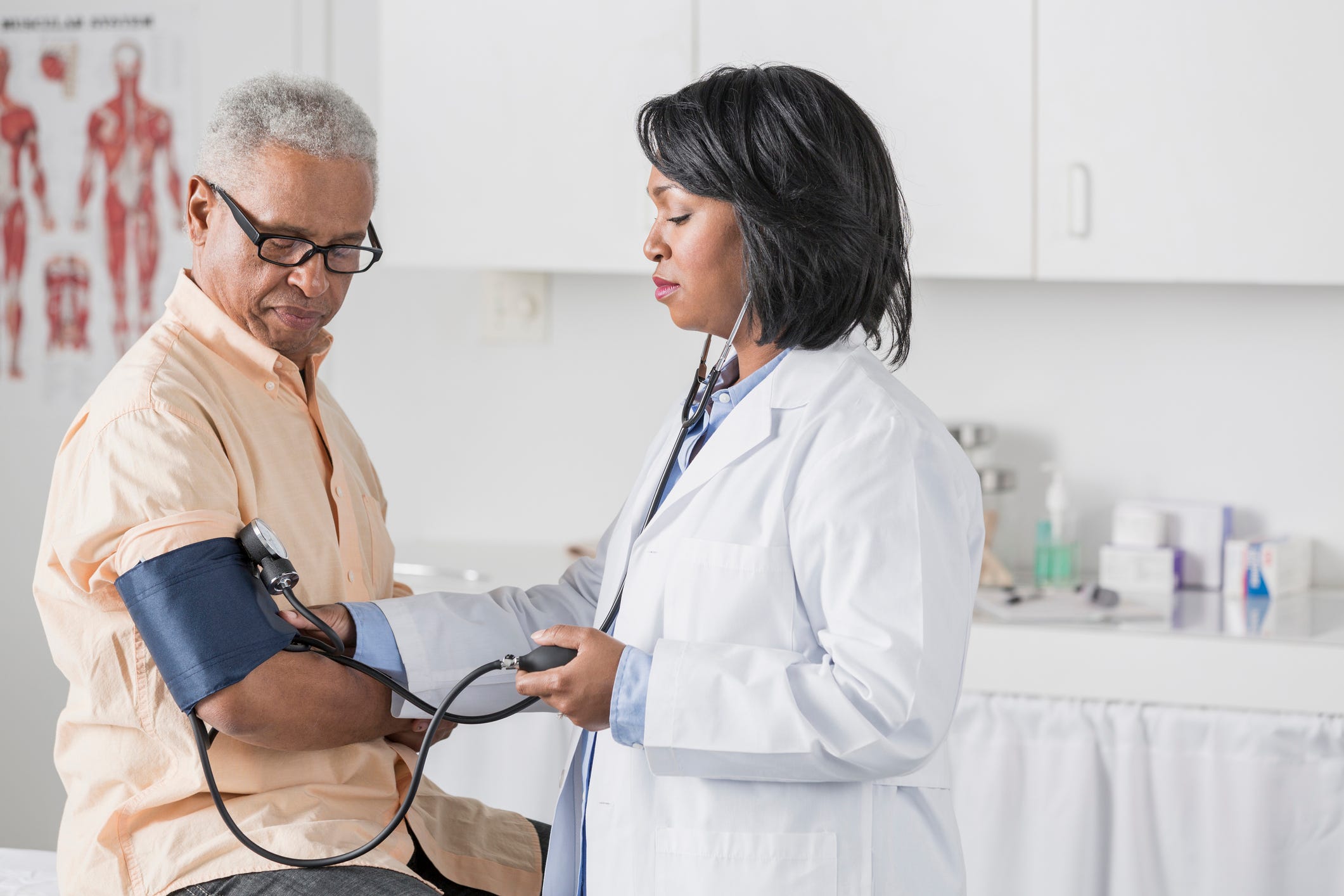Adam Kosloff
Many of those who have high blood pressure might not even know it. A study by the National Institutes of Health looked at data more than 14,000 between ages 24 and 32. Nineteen percent of them had high blood pressure, and many didn’t realize it because they didn’t notice any symptoms.
Even though it may not have readily noticeable symptoms, high blood pressure, also known as hypertension, has some serious effects on your body. According to the National Heart, Lung and Blood Institute (NHLBI), the consequences of high blood pressure include:
- Increased risk of stroke.
- Burst blood vessels in the eyes.
- Hardened arteries (which force the heart and kidneys to work harder).
- Increased risk of congestive heart failure.
Because high blood pressure doesn’t have symptoms, the only way to know whether you have it is to get tested. Blood pressure tests measure how hard the heart is working, according to the Department of Health and Human Services (HHS). Tests yield two numbers. Normal blood pressure is lower than 120/80 (the health care provider administering the test probably will refer to this as “120 over 80”), while high blood pressure is 140/90 or higher.
A blood pressure test is generally a routine part of a checkup or physical. For those who have health insurance, blood pressure testing is included among the preventative procedures that are now free under the federal health care reform law. That means you won’t have to pay a deductible or co-pay. If, however, the blood pressure test is not the primary reason for the visit (it’s part of an office visit, for example), you may get billed, according to HHS.
According to HHS, about one-third of Americans have high blood pressure, and most Americans over age 40 are at risk for developing the condition. The causes of high blood pressure vary, according to NHLBI, and may include narrowing of the arteries, a greater-than-normal amount of blood or an overactive heart that beats faster than it should. Your risk for hypertension increases, according to HHS, if you are overweight, smoke, have a family history of hypertension, eat high-sodium foods, exercise fewer than 30 minutes a day and drink substantial amounts of alcohol.
Although there’s no cure for high blood pressure, it can be prevented and managed. HHS recommends that those who have high blood pressure eat foods lower in sodium, become more physically active and lose excess weight. If you have hypertension, your doctor may recommend that you get a monitor (available at pharmacies and medical supply stores) that allows you to keep tabs on your blood pressure at home.
